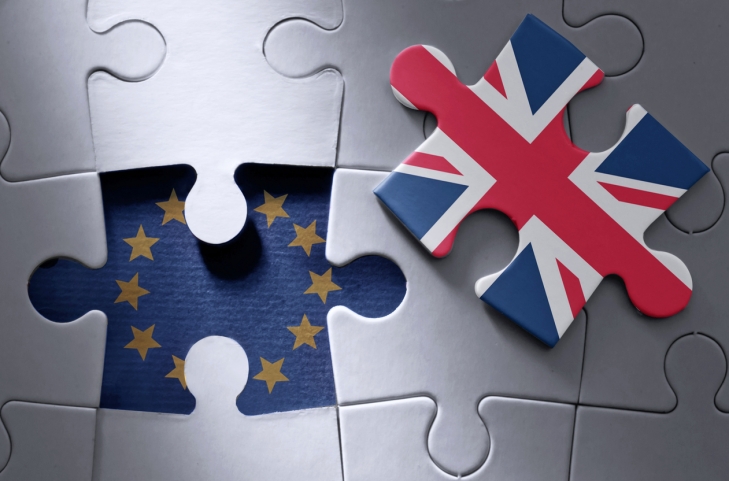
“Free and fair” trade is crucial for world prosperity but more must be done to convince those who have lost out in globalisation
Just days ago, British voters’ decision to leave the European Union was officially confirmed by Prime Minister Theresa May’s signing of the letter invoking Article 50. For the millions of older, less-educated Britons who voted for Brexit, it was a case of “Finally!”
The weeks ahead will be a nervous time for European leaders. France will elect its President in early May, about the same time regional elections in Germany take place. Voters in Europe’s largest economy will hold parliamentary elections in September in what could be a referendum on Chancellor Angela Merkel and her pro-EU stance.
While Merkel’s position has been dented by the refugee crisis, her CDU party is expected to stay in power. The same could not be said for France.
“There is no plan B if Marine Le Pen wins and organise a referendum to leave EU in France,” admits Cecilia Malmström, the European Union's (EU) Commissioner for Trade. “First of all, we don’t know if she would win, and secondly, would she organise a referendum and would the French vote for it.
“France is one of the founding members of the European Union, so for the French to leave the EU is a very big step to take. It would be a very big blow if France does leave.”
Should I stay or should I go?
Speaking at the recent SMU Presidential Distinguished Lecture, “The Future of EU Trade Policy in Asia”, the commissioner extolled the virtues of free trade while highlighting the need to soften the economic blow dealt by globalisation that has helped fuel populism in Europe and beyond.
“Free trade creates jobs: 31 million jobs in the EU depend on exports to countries outside of the EU, and millions others depend on imports,” says Malmström. “But we must be honest about it: some parts of society have not seen the benefits of free trade, technology or globalisation. Some have lost out as labour markets change.
“Today, politicians everywhere try to make sure there are safety nets for those who lose out. There are also efforts to make sure there are investments in training to update skills so that people can move on to higher-skilled jobs. That is the biggest challenge for EU member states.”
But how can European leaders convince their citizens to reject anti-globalisation movements?
“First of all, the majority of Europeans do believe in free trade,” Malmström asserts. “What we have tried to do is increase transparency, to increase engagement. We have travelled across Europe to listen to critics, and we have reformed ways we negotiated trade agreements.
“We’ve tried to make sure trade is not only free but also fair. We have worked to show that free trade delivers jobs, but we have to do more on that front.”
Across the Atlantic in the United States, free trade is similarly under siege. President Donald Trump has pulled the United States out of the Trans-Pacific Partnership (TPP), and has promised to renegotiate the North American Free Trade Agreement (NAFTA), which he had labelled as the “worst trade deal ever”.
With America seemingly retreating from world trade, does the EU view it as an opportunity to fill the void?
“Yes and no,” says Malmström. “It is a pity if the United States disengages from global trade. We need a strong United States to defend global trade rules. The United States has benefited enormously from trade, and therefore disengaging would not be beneficial for them.
“We shouldn’t see this as a zero-sum game. I really want the U.S., Europe, and Asia to have a constructive relationship on trade and other matters. What I have seen since the cancellation of the TPP is every country of the TPP asking the EU to speed up negotiations. In different meetings around the world, we have allies wanting to work with us to defend the multilateral system, and made good trade agreements.”
The road ahead
With a myriad of overlapping bilateral and multilateral free trade agreements around the world, it can be a challenge harmonising what Malmström describes as “a spaghetti bowl of hundreds of trade agreements”.
“The ideal situation is for the whole world to have free trade agreements within the premise of the WTO – global deals with full transparency of all 164 members,” Malmström explains before adding, “Unfortunately, that doesn’t work.
“I’m a big fan of the WTO and I have been pushing for that agenda, but the WTO is incapable of delivering that kind of advanced trade agreements that the world is asking for.”
Complicating matters is the difference in development amongst different economies within a free trade area such as ASEAN, where Malmström points out “you cannot expect Laos to sign up for the same commitments as Singapore”. But isolationism, she insists, is not the answer.
“The path of protectionism will not work [and] it will not make anybody’s country great again; it will simply make everybody worse off,” Malmström states in a clear reference to President Trump. “We must support [those who have lost their jobs] with investments that can make a difference with better training, skills, and infrastructure.”
Follow us on Twitter (@sgsmuperspectiv) or like us on Facebook (https://www.facebook.com/PerspectivesAtSMU)
Last updated on 27 Oct 2017 .